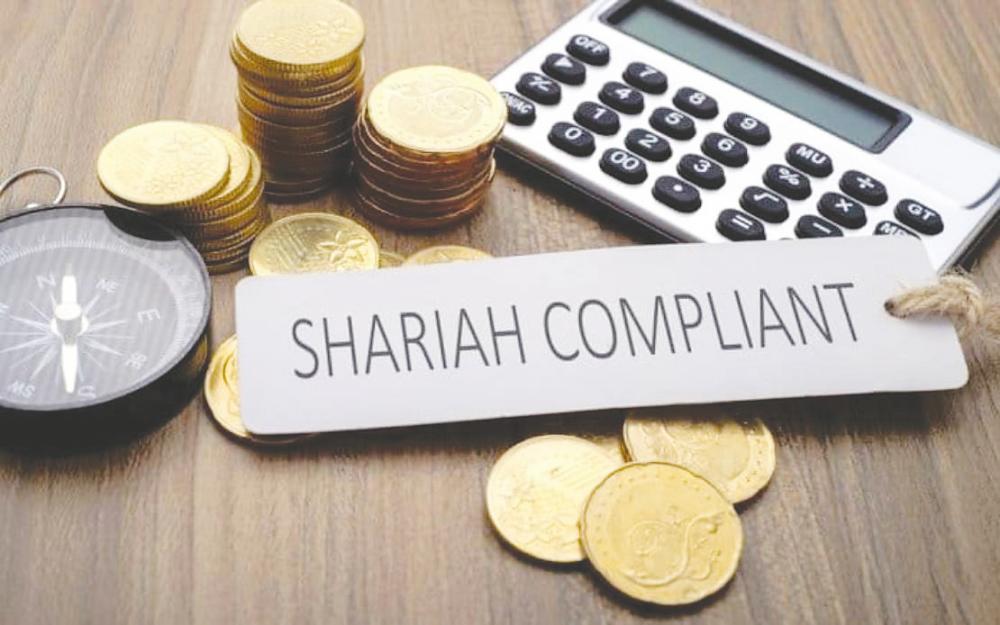MALAYSIA’S Islamic finance industry is growing steadily despite the calamities caused by Covid-19 outbreak in 2020. The data in the Economic Outlook 2021 report published by the Finance Ministry (MoF) shows that the Islamic banking industry in Malaysia has expanded with total assets valued at RM1.03 billion and the total outstanding Islamic financing has increased to RM787.8 billion. According to the MoF, Malaysia’s Islamic finance industry is expected to expand further with the continuous promotion of Shariah-compliant products.
Despite the expansion of the Islamic finance industry in Malaysia, some may still have misconceptions about Islamic finance – for instance, that Islamic financing is only limited to Muslims, is old-fashioned or is more complicated compared to conventional financing. In fact, Islamic finance is a credible alternative to the conventional financial system. To debunk some of these myths, this article provides an overview of the basics of Islamic finance in Malaysia.
Regulatory structure
In respect of Islamic finance in Malaysia, banking and insurance products are supervised by the Shariah Advisory Council (SAC) of Bank Negara Malaysia (BNM) established under the Central Bank of Malaysia Act 2009. The role of BNM’s SAC includes ascertaining the Islamic law on any financial matter and advising BNM on any issue relating to Islamic financial business. Meanwhile, the SAC of the Securities Commission (SC) established under the Capital Market and Services Act 2007 oversees capital markets and provides advice to the SC on Islamic capital market business matters.
In the landmark Malaysian case of JRI Resources Sdn Bhd v Kuwait Finance House (Malaysia) Bhd decided in 2019, the Federal Court held that rulings on Islamic finance by the SAC are binding on any Malaysian court or arbitrator. Having said that, it should be noted that the SAC is a statutory expert which assists the court in applying Islamic laws; and it is not a judicial body which resolves disputes between parties.
Approved Shariah principles
As the Islamic financial system operates in accordance with the principles of Shariah law, elements such as usury (riba), ambiguity (gharar) and speculation (maisir) are prohibited. BNM and the SC have prescribed approved Shariah principles that apply to banking, insurance and capital market products in Malaysia – mudharabah (profit-sharing), murabahah (cost-plus sale) and tawarruq (tripartite sale) to name a few. Having knowledge of the Shariah principles that apply in Islamic finance provides an understanding of the basis upon which products in Islamic finance are developed and structured. The following is a brief explanation of several fundamental Shariah principles that are applied in Islamic finance.
Mudharabah is a contract where the rabb al-mal (capital provider) provides capital to the mudharib (entrepreneur) whose role is to manage and invest the capital. Profits from the investment are shared between the parties according to a pre-agreed ratio. In the event of a loss, the rabb al-mal will bear the loss solely. In Malaysia, the mudharabah principle is usually used in various types of deposit contracts.
Meanwhile, murabahah is an arrangement for the sale and purchase of assets under which the seller and buyer agree to the acquisition cost and mark-up of the assets. Under this structure, the customer (conventionally referred to as the borrower) promises to purchase an asset from the financier (conventionally referred to as the borrower/lender) once the financier acquires the asset. The acquisition cost reflects the principal amount of the financing while the mark-up reflects the profit (conventionally referred to as the interest on a loan).
Tawarruq is a financing arrangement where a buyer purchases a commodity from a seller on a deferred basis and sells the same commodity to a third party on a cash and spot basis – this is as opposed to deferred basis where buying and selling of, say commodity in this case, for immediate settlement. There are three parties (i.e. the bank, the customer and the broker) involved in the sales transactions under Tawarruq and the customer will receive cash, instead of the commodity, at the end of the transactions. Tawarruq is usually used in personal financing instruments.
Recent developments and conclusion
The Covid-19 pandemic has prompted increased awareness of the potential of financial technology offerings in the area of Islamic finance such as Shariah-compliant digital assets, crowdfunding platforms and peer-to-peer financing platforms, which are gaining popularity in the market. As Malaysia’s Islamic finance industry evolves, more Shariah-compliant products have been introduced and are available in the local market, targeting both Muslim and non-Muslim investors.
Structuring Shariah-compliant products is not only about avoiding riba and gharar or complying with SAC rulings. It is also about financial literacy, technology, and ensuring products adhere to the ever-increasing dearth of laws and regulations from BNM. Thus, it would be prudent for Islamic finance players to consider the legal and technological aspects when developing and structuring Shariah-compliant products.
This article was contributed by Lim Ziyi of Christopher & Lee Ong.










